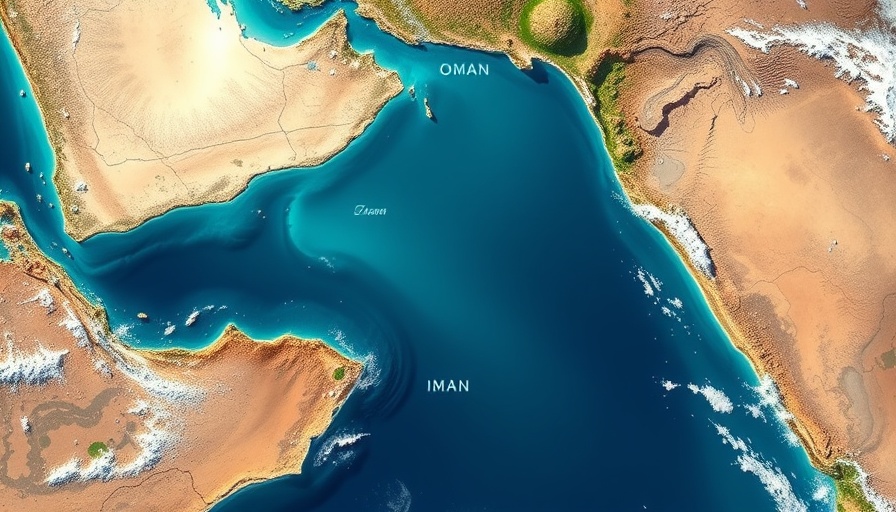
An Uncertain Future: The Geopolitical Stakes of the Strait of Hormuz
The Strait of Hormuz, the narrow waterway linking the Persian Gulf to the ocean, is pivotal to global shipping and oil trade, with about 20% of the world's oil supply passing through it. The recent escalation in tensions between the U.S. and Iran raised alarms about the possibility of Iran potentially threatening to close this vital maritime passage. As Iran's Parliament has suggested a motion to close the strait as a response to U.S. military action, uncertainty looms large over international trade routes.
Understanding the Strategic Importance of the Strait of Hormuz
The Strait has served as the main artery for oil-rich countries in the Gulf, making it a focal point not only for economic stability in the region but for global energy markets as a whole. Any disruptions in this flow can lead to skyrocketing oil prices and vast economic repercussions beyond the immediate region. According to recent assessments from various maritime authorities, including the Joint Maritime Information Center (JMIC), tensions remain elevated, but traffic continues unabated.
A Closer Look at Iran’s Military Responses
Even as Iran has signaled potential military action, particularly targeting U.S.-affiliated shipping, the extent of any closure or intervention remains unclear. Experts from Ambrey Analytics highlight the likelihood that any actions taken by Iran would focus particularly on vessels affiliated with the U.S. and its allies, rather than a blanket closure of the strait, which would harm Iran's own economic relations.
Recent Developments in Maritime Business Operations
Following the U.S.'s military operations, there has been some hesitancy among merchant vessels, with several opting to turn back or wait before entering the strait. Despite the high risk assessment for U.S. and Israeli vessels, the JMIC maintains that there is no immediate indication that commercial activity will be broadly targeted, suggesting that Iran's strategies may be calculated to avoid detrimental disruptions to its economy.
The Role of Regional Allies and Geopolitical Pressures
The presence and motivations of regional actors, including the Houthis, play a critical role in shaping the security landscape near the strait. Their vow to respond to U.S. actions introduces another layer of complexity as they may seek to carry out attacks against U.S.-affiliated vessels not just out of direct conflict with the U.S., but as leverage in the ongoing geopolitical chess game.
Implications of Potential International Intervention
Any potential intervention by the U.S. or allied forces would likely depend on the evolving scenario of Iranian military movements and the overall threat level assessed by intelligence agencies. Previous strategies have included deterrent postures, enhanced naval presence, and allied maritime patrols to safeguard this crucial pathway. The question remains whether such measures will deter Iran's geopolitical gambits.
What If the Strait Were to Close?
The ramifications of a closure, even if selective, would be profound. It would not only push oil prices and shipping rates upward but could also damage Iran’s relationships with neighboring states reliant on oil exports passing through the strait. Therefore, while tensions between the U.S. and Iran are palpable, it seems that a complete closure of the strait may not align with Iran’s long-term economic interests.
Future Predictions and Opportunities for Global Stakeholders
As nations and businesses closely monitor the Strait of Hormuz, there will undoubtedly be a push for diplomatic solutions alongside military readiness. Future dialogues among Gulf states, led by international agencies, may pave the way for agreements that stabilize shipping routes while addressing security needs. The potential for technological advancements in alternative maritime routes and energy resources will also impact the global shipping landscape.
Continued vigilance in this vital maritime area will be essential as stakeholders navigate the complexities of both trade and security amidst growing tensions. Understanding the interplay of regional diplomacy, military readiness, and economic stability will lay the foundation for future developments in the Strait of Hormuz.
 Add Row
Add Row  Add
Add 




Write A Comment